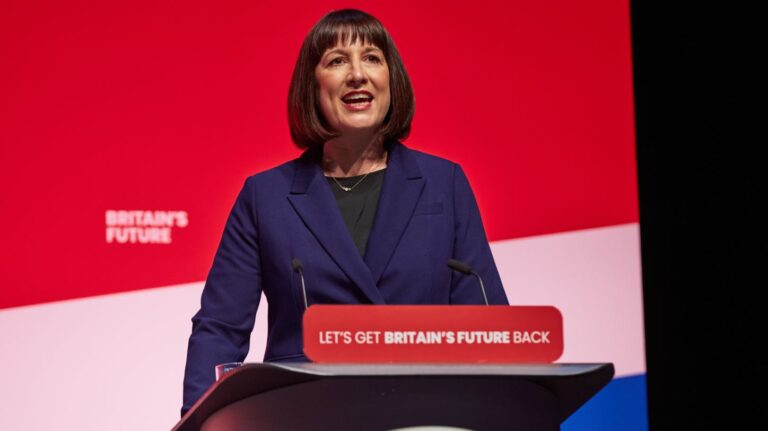UK chancellor Rachel Reeves has confirmed a substantial investment package in local and regional transport as part of the UK government’s 2025 Spending Review, positioning infrastructure renewal as central to economic revival, connectivity and clean growth.
Speaking in Parliament, Reeves declared: “The priorities of this spending review are the priorities of working people – to invest in Britain’s security, in Britain’s health, and to grow Britain’s economy so that working people are better off.”
At the heart of the announcement is a record £15.6bn investment in local transport across England’s city regions, more than doubling capital spending by 2029/30 compared to 2024/25. Reeves called it “the biggest ever investment of its kind”, with funding allocated across nine Mayoral Combined Authorities to deliver new tram lines, bus reforms, and mass transit systems.
Key allocations include:
-
£2.5bn to Greater Manchester to expand the Metrolink tram network, including new stops in Bury, Oldham and a Stockport extension, and purchase 1,000 zero-emission buses as part of a fully electric Bee Network.
-
£2.1bn to West Yorkshire to commence the West Yorkshire Mass Transit system by 2028, including bus station upgrades in Bradford and Wakefield.
-
£1.5bn to South Yorkshire, of which £530m will fund full tram fleet renewal and £350m will deliver franchised bus operations in Sheffield, Doncaster and Rotherham by 2029.
-
£1.8bn to the North East for a Metro extension linking Sunderland to Newcastle via Washington.
-
£1.6bn to Liverpool City Region, supporting three new Bus Rapid Transit routes and new vehicles for its franchised network.
The chancellor confirmed the funding would give local leaders “the means to drive cities, towns and communities forward”, with a Green Book review also published to support “place-based business cases” and end historical underinvestment in the North and Midlands.
In addition, Reeves announced an extension of the £3 single-bus fare cap in England until at least March 2027, calling it “our commitment to make everyday travel more affordable.” Campaign for Better Transport’s Ben Plowden welcomed the move, stating: “It’s great to see trams prioritised in several areas… but we now need similar commitment to revenue funding and service delivery.”
However, concerns have emerged over the Spending Review’s implications for operational funding. While capital investment has increased, the Department for Transport is facing a 5% real-terms reduction in its day-to-day spending budget, potentially impacting maintenance, staffing and service provision. Industry observers have warned that without sustained revenue funding, the full benefits of infrastructure upgrades may not be realised.
The Spending Review also commits to £3.5bn for the Transpennine Route Upgrade, with a quarter of the route expected to be electrified by summer 2025; £2.5bn for East West Rail; and £445m for a 10-year Welsh rail upgrade package.
What’s more, a four-year £2.1bn settlement for Transport for London was announced, in a move the chancellor said would ensure “certainty and stability” for the UK capital’s largest transport authority.
UK transport secretary Heidi Alexander said: “Today marks a watershed moment on our journey to improving transport across the North and Midlands – opening up access to jobs, growing the economy and driving up quality of life as we deliver our Plan for Change.”
Martin Tugwell, chief executive at Transport for the North, called the announcements “very welcome”, particularly the support for the Transpennine upgrade and local bus fare caps, adding: “Investment in new rail capacity is long overdue to unlock the region’s growth potential.”
ITS UK chief executive Max Sugarman praised the capital allocations but urged clarity on operational funding: “To maximise impact, authorities need the ability to procure digital and software solutions through operational expenditure as well.”
Transport Action Network director Chris Todd, while welcoming the confirmation of city-region projects, warned: “The 40% cut to Active Travel England’s budget shows why the Treasury still needs reform. Active travel consistently delivers high returns – we’re concerned about poor-value road expansions like the Lower Thames Crossing.”
Todd’s concerns follow a Court of Appeal ruling that found the previous government’s active travel funding cuts unlawful. The Labour government defended the cuts but lost the case – raising questions over the consistency of decarbonisation policy.
Councillor James Lewis, leader of Leeds City Council, hailed the £2.1bn funding for West Yorkshire’s tram system as “a vital boost”, while the Confederation of Passenger Transport’s Alison Edwards added: “Buses must receive their fair share of capital funding. Every £1 invested in buses returns £4.55 to the economy.”
From the mobility industry, the National Franchised Dealers Association noted the £1.4bn EV adoption fund and £400m for chargepoint rollout, but called for further clarity. “Government needs to incentivise uptake – not just support infrastructure,” said chief executive Sue Robinson.
With £24bn earmarked for both strategic and local roads, attention now turns to the forthcoming Infrastructure Strategy and draft Roads Investment Strategy 3 (RIS3) – due next week. Industry will be watching closely to see whether this sum prioritises road maintenance and climate resilience, or continues to fund large-scale expansion projects at odds with the UK’s Net Zero objectives.
Reeves concluded the 2025 Spending Review by saying: “It is no good investing in new skills, new jobs and new homes if they are not properly connected. That is what this government will do – with a plan to make every part of Britain better off.”
Achievements and innovations in urban mobility will be recognised and celebrated at the fourth annual CiTTi Awards on 25 November 2025 at De Vere Grand Connaught Rooms in London. Visit www.cittiawards.co.uk to learn more about this unmissable event for the UK’s transportation sector!





